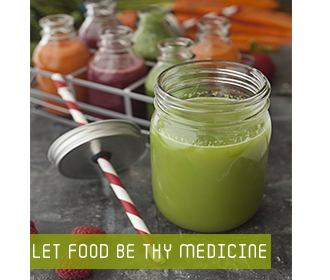What is Candida?
Candida albicans is a yeast germ that lives in our GI tract and is normally present in small amounts. The yeast normally lives in balance with good bacteria living in our system, and according to sources the ideal ratio of Candida to bacteria in the body should be 1 to 1 million (Watsen). The good bacteria in your system keep the Candida levels to a minimum, allowing your body to be in homeostasis, or balance. However, when the Candida grows and multiplies and then mutates into a fungal form it can lead to an imbalance in the digestive system. The yeast begins to outnumber the good bacteria in our bodies, and we may start to notice digestive and immune difficulties.
Why might you have Candida overgrowth?
When the environment in our body has shifted, it becomes one that yeast thrives in and is often due to:
- poor diet-too much sugar and processed refined foods, not enough whole, live, and natural foods
- impaired digestive system-not chewing foods properly, eating foods that damage the intestinal lining, inflammation in the digestive system
- stress-when we are stressed we do not digest our food properly
- environmental toxins and pollutants-these create an imbalance in our body
- taking supplements that kill off good bacteria in the body-remember that the good bacteria keeps the bad guys in check.
When your digestive system is not functioning optimally food cannot be broken down effectively, creating an environment that yeast loves! Yeast will feed off of food that we are not digesting, and they love sugar.
What may you experience if you have a Candida imbalance in your body?
- Fatigue
- Skin issues
- Bloating and indigestion
- Sugar cravings
- Headaches
- Irritability
As soon as you have an imbalance in your good bacteria to Candida ratio, other “bad” bacteria begin to flourish, creating more problems-more bloating, abdominal pain, indigestion, and sugar cravings. According to Dr. John Matsen, the yeast and bad bacteria in your digestive system will begin to digest anything that you are slow to digest, and at the same time they “make at least seventy-eight different types of toxins” (25). These toxins can prevent our good bacteria from flourishing, and so the cycle continues: more yeast can grow creating a further imbalance.
What can you do? Take on a Candida Diet. This can be tough at first, but as you start to feel better and as your body begins to return to homeostasis, you can add back in certain foods.
- Avoid foods containing yeasts, molds, and foods that have been fermented such as brewer’s yeast, breads with yeast, pastries, wine, beer and other fermented liquids and vinegar containing foods like pickles. Avoid cheese and mushrooms as they contain or are molds or yeasts
- Watch your sugar intake: eliminate refined sugars as well as the foods that contain them. Sugar is sugar and so you need to eliminate table sugar, honey, fructose, molasses, maple syrup, and agave nectar. As you begin to feel better you can add back in some of the natural sweeteners
- Avoid fruit juices as they are very high in sugar
- Limit the amount of refined and processed carbohydrates, like breads and pastas. Instead eat the whole grains themselves. Try millet, amaranth and quinoa
- Use garlic in your food preparation. Garlic works against fungus and can help strengthen the immune system
- Switch to a plain organic yogurt, which is a source of good bacteria, or talk to a health practitioner about using a probiotic
- Eat a lot of veggies. Vegetables are a good source of fiber which will help maintain proper elimination and overall digestive health
- Include fiber daily; use oat bran or ground flax seeds and add them to cereals or shakes. If you are not used to a fiber-rich diet, slowly add fiber daily starting with 1 tsp. Remember that as you include more fiber in your diet you MUST increase the amount of water you are drinking
- Avoid pickled, smoked, or dried meats and fish
- Use olive oil as a salad dressing as it contains oleic acid, which has been found to prevent Candida from converting to the fungal form (Watsen, 95)
- Manage stress: start walking, spend time with family and friends, and do the things you love doing. Stress can affect the digestive system.
- Exercise: get out and walk!
- Keep a Food Journal. This will help you to identify which foods may be creating inflammation in your body. Keep track of how you feel after meals; are you bloated and uncomfortable, or do you feel sluggish or fatigued?
- Essential Fatty Acids are important for the health of our bodies. Include some fish in your diet, or use flax or hemp oil as dressings for salads.
- Chew your food! Slow down to ensure that you are breaking down and absorbing the foods you are eating. If you don’t, the yeast will!
- Drinks lots of water to ensure that you are properly hydrated and that your bowels can work effectively.
Sources:
Watsen, B. Renew Your Life: Improved Digestion and Detoxification. 2002.
Matsen, J. Eating Alive: Prevention Thru Good Digestion. 2002.
Balch, P. Prescription for Nutritional Healing 3rd edition. 2000.
Article by: Carrie Dancey, RHN










